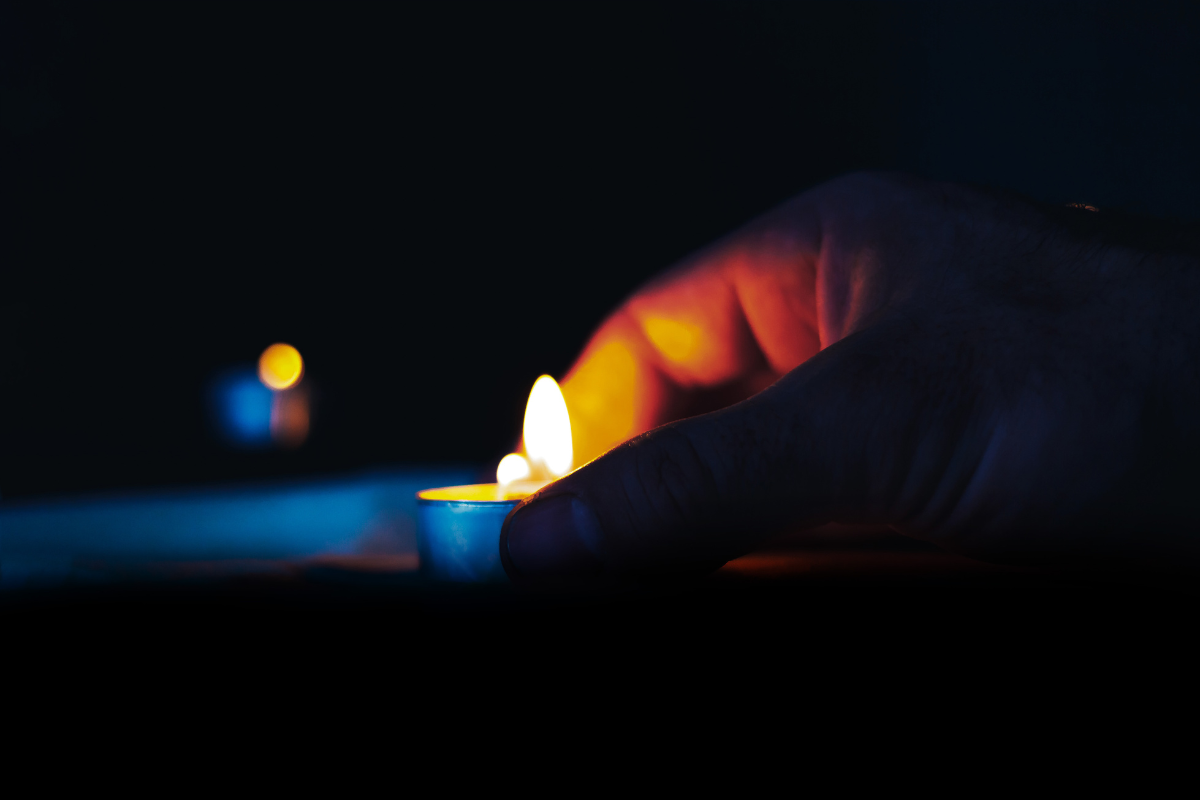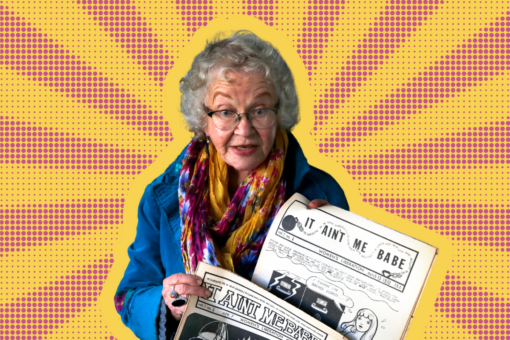As for so many Jewish people, the story of my family’s endurance is not something I can remember being told so much as something that has always existed within me. I grew up with a visceral understanding of what we as a bloodline had suffered and survived. Names and stories and lives were strung through us all on an invisible thread, tying us to each other and to the each others of every generation past, present and future. And I was lucky enough to have this history brought to life by my great-grandma Lilly, who was in my life until she died when I was 12.
Her story has always lived in my mind with such color. Instead of seeming to be about danger and fear, tales of her adolescence were filled with humor and personality. She was not especially interested in casting a shadow of sadness over her life, and she recounted her own history with a sense of pride.
In 1933, she had been expelled from her school in Berlin after it was reported — truthfully — that when passing a group of SS men, she had remarked to the friends she was with that the officers were “real schweine,” (pigs). At the age of 12, she had faced the extremely public humiliation of being shamed in front of her whole school, not to mention the terrifying indication of the ever-tightening grip of Nazi power in Germany. But to me, this was a story about her courage, her boldness, her defiance. This was about being unafraid.
As life in Berlin became increasingly unsafe for Lilly and her family, they decided to leave while they could. They were deciding between London and Prague as a destination, and fatefully chose Prague, meaning that when Nazi forces invaded in 1938, they were put in incredible danger once again. Thanks to the hard work of her parents, my great-grandmother was able to get the papers to leave Czechoslovakia by train, even after Prague had been occupied. She was almost exactly the same age as I was when I started at university. What she had to do — leave everything behind, create a new life for herself in an entirely unknown and unfamiliar place, never see her family again — is unthinkable to me.
She came as a refugee of war to Manchester alone, knowing no one, planning to work as a live-in maid. She recounted stories of the food that she couldn’t make, the customs she didn’t understand, and the hilarity of the woman she worked with for finding the black and white “maid outfit” she had brought with her. She turned this period of immense uncertainty and loneliness into a collection of jokes and victories. In the shattered pieces of her childhood, she picked out the most beautiful shards, polished them and passed them down to us.
She saw her story as one of triumph. Sitting around the table at her birthday celebrations, with her two children, six grandchildren and seemingly innumerable great-grandchildren, she would always look around and say, “Well isn’t this a poke in the eye for Hitler.” As a legacy, we all carry her with us. Sitting around a table together now, we are ever-conscious of the unlikelihood of our being here. We look at the moments where decisions were made by us or for us, and how they have all led to where we are.
I wouldn’t always advocate for such intense positivity. Grappling with the absolute horror of so much of her life was, I know, something she also had to do, including only admitting to herself that she had truly made the fateful schweine comment when she was in her late 40s. It’s important that we don’t force ourselves to focus on the bright side to such an extent that we are blinded by it. But I have just endless admiration for anyone’s ability to upcycle such a terrible, unimaginable set of circumstances into kindness, power and such a strong sense of self.
To call my great-grandmother an inspiration feels reductively trite, and far too generic. It is bigger than that. She lives in all of us. She’s a voice that tells me to push harder and find more and more happiness. She’s a current running through me. She isn’t a cautionary tale or a vision board, and she isn’t anyone’s martyr. She was a person, and it’s as exactly who she was that she shall be remembered. Her memory is a blessing.



